 Let’s start with an introduction: Who is Stephanie Saulter?
Let’s start with an introduction: Who is Stephanie Saulter?
She’s Jamaican-born, American-educated, a Londoner by choice. A good cook and a bad singer. Possessor of a career that’s had at least as much to do with what could be learned as what could be earned. The person who never ends up seeing the films that everyone else is talking about, because she stayed home and read a book.
Your novel Binary is due to be published in the US by Quercus in May 2015. It’s the second in your ®Evolution series – how would you introduce the series to a new reader, and what can fans expect from book two?
The ®Evolution trilogy is set in a London of the near future, around a hundred years after a technologically-caused pandemic known as the Syndrome came close to wiping out the entire human species. Genetic engineering of embryos eventually provided immunity and prevented extinction, but with some babies it was taken further, creating a servant class of genetically modified humans known as gems. This continued for generations, until the indenture system was abolished and gems were acknowledged to have at least some of the rights of other humans. The first book, Gemsigns, takes place against the backdrop of the upheaval that follows this decision. The gemtechs are trying to overturn it and reclaim the people they think of as their property; those people are living in freedom for the first time, and fighting to preserve it; there are progressives who want to help them, and religious extremists who want to wipe them out; the norm majority are conflicted, fearful and easily manipulated. It’s an explosive mix. Events pivot around the gems’ charismatic leader, Aryel Morningstar – a woman whose origins and abilities are shrouded in mystery, and who is loved and feared in equal measure.
US Cover
The mood in Binary is a bit different; a few years have passed and a new equilibrium – personal and political – has developed between gems and norms. But there’s still a lot of unease and latent prejudice, especially around mixed relationships and what that legacy will mean for the next generation. The theft of quarantined genestock raises fears of black market gemtech; the technology that caused the Syndrome is on the rise again; and the secrets of Aryel Morningstar’s past could affect the present and future of every gem. Like Gemsigns, Binary is a thriller with deeper themes of race, belief, acceptance, belonging, the lengths that humans will go to, and what it means to be human.
What inspired you to write the novels? And where do you draw your inspiration from in general?
There was a particular type of science fiction that I wanted to read, but could never seem to find; a science fiction that wasn’t about adventures in space in the far distant future, but that looked at some of the technological and social changes that are happening right here, right now. Societies all over the world have been utterly transformed in the past few decades, first by the biosciences – antisepsis, antibiotics, vaccines, agricultural developments that enable the feeding of vastly greater populations – and by computer science, the information revolution. I wanted a science fiction that engaged with the realities of our contemporary culture. I wanted to see some of the social realism we normally associate with mainstream fiction applied to speculation about where technology might lead us. Eventually it got to the point where I realised that if I wanted those books to exist, I had better write them.
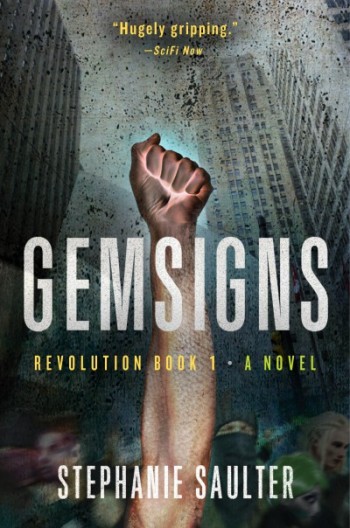
US Cover
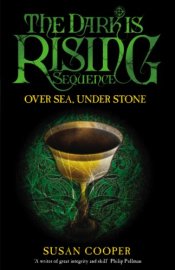 How were you introduced to genre fiction?
How were you introduced to genre fiction?
When I was a kid, books were books. My mother gave me The Hobbit when I was eight or nine, and I remember reading Over Sea, Under Stone by Susan Cooper around then, too, and A Wrinkle in Time by Madeleine L’Engle. But I read them alongside Black Beauty and Jane Eyre and The Wind in the Willows and Tom Sawyer and whatever else I could get my hands on, with no sense that there were meant to be distinctions between them. I had no awareness of ‘genre’ until quite late in life.
How do you like being a writer and working within the publishing industry?
I love being a writer when it’s going well; not so much when it isn’t! But I am always very happy to have written. It gives me immense satisfaction. So far the publishing industry has been very good to me – I got an agent without any difficulty, sold my first manuscript shortly thereafter, and I work with a great editor and an enthusiastic team. The industry as a whole has challenges, of course, and I think it’s perhaps not evolving quite as fast as it should in response to them, but those issues are not specific to me. Personally, I’ve got no complaints.
Do you have any specific working, writing, researching practices?
I work best when I’m not trying to snatch an hour or two here or there, and instead can focus for long stretches of time. I do the research that I think will be needed in advance, but inevitably the story develops in ways I didn’t anticipate; I find myself having to park the writing, go do some more reading and then come back to it. The thing that I don’t do is a fast draft and then endless fleshing out and rewriting – that doesn’t work for me at all. I think through the overall structure and direction of the narrative, then I start at the beginning and write through to the end.
The only exception to that is where there’s a real shift in tone, as with the flashback scenes in Binary; they are told in a markedly different narrative voice to the rest of the text. I wrote them on days when that was the style I was in the mood for, then worked out where to insert them into the rest of the narrative.
UK Covers
When did you realize you wanted to be an author, and what was your first foray into writing? Do you still look back on it fondly?
I don’t think there was a single eureka moment. I vaguely remember winning a prize for a story I wrote in university, but I have no recollection of what it was about or what happened to it (this was back in the Pre-Internet Age, when things really could be lost forever), and I didn’t keep on writing afterwards. It wasn’t until ten or fifteen years later that I realised I had stories to tell. About ten years ago I wrote a screenplay, and then a year or so later I wrote another. I think I will revisit at least one of those stories one day and turn it into something better; but I’ve realised since that what I was really up to then was teaching myself how to write dialogue. I used to think I didn’t know how to do that well, but you can’t dodge it in a screenplay – the entire story has to be told through dialogue. I discovered that I am actually rather good at it.
What’s your opinion of the genre today, and where do you see your work fitting into it?
I think I’m part of creating that greater breadth and depth that I was looking for and not finding, but I also realise now that a far wider and more interesting range of books already existed than I had been aware of at the time. It may sound odd given the current Hugos fiasco, but I actually think the genre is in pretty good health. You wouldn’t get desperate rearguard actions from bigoted writers of generic plots and frankly appalling prose unless they were really, truly scared. And so they should be. There’s been an assumption – and for some people, a reliance – on an artificial divide between genre and mainstream, quality vs. popularity, seriousness vs. entertainment. Those days are over. My readers come from both the hardcore SF and the mainstream fiction communities. I hear from people who think Gemsigns should be turned into a Hollywood movie; Gemsigns is also on a university syllabus. I get comments about the deep socio-political themes of the work; and about the scientific speculation; and about the characters and their relationships. I’m delighted to be one of a number of writers producing work that engages across genres and on multiple levels.
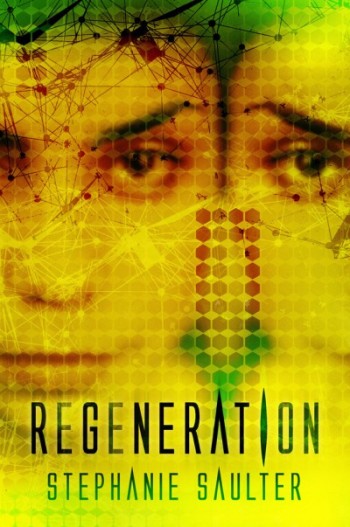
UK Cover
Do you have any other projects in the pipeline, and what are you working on at the moment?
I have just – literally within the past week – finished with copy-edits to the final ®Evolution book, Regeneration. It’ll be published in the UK this August and in the US next year. I also recently wrote a ®Evolution short story called Fractured Music, which will also be published this summer. So there will be ®Evolution-related bits and pieces for some time to come, but I’m starting to think about the next project. I don’t quite know what it will be yet.
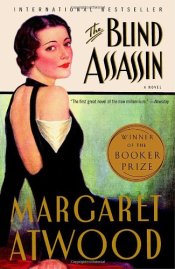 What are you reading at the moment (fiction, non-fiction)?
What are you reading at the moment (fiction, non-fiction)?
I’m working my way fairly slowly through Margaret Atwood’s The Blind Assassin, alternating with Dilman Dila’s short story collection, A Killing in the Sun. Non-fiction tends to be a fairly random selection from online journals and periodicals, although the latest issue of MIT’s Technology Review looks like it might merit a serious read.
What’s something readers might be surprised to learn about you?
I never know what will surprise them because I never know what they expect! But they’re often surprised to learn that I really did only start to write in my forties, and that I do not have a drawer full of unpublished manuscripts and short stories.
What are you most looking forward to in the next twelve months?
Much as I love the world and characters of the ®Evolution books, I’m ready to move on. I want a new challenge, and I’m looking forward to discovering what I’m going to do next.
*
Binary is published in the US by Quercus on May 5th, 2015. Gemsigns is out now in hardcover, and the paperback will be published also on May 5th. Both Gemsigns and Binary are published in the UK by Jo Fletcher Books. Regeneration is due to be published in the UK on August 6th, 2015.
Also on CR: Review of Gemsigns; Guest Post on Influences & Inspirations; Excerpt from Gemsigns

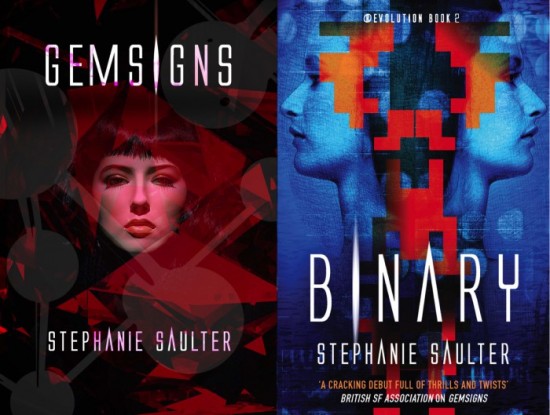
Looking forward to starting Binary. Happy to hear the third book is already on the horizon, sweet!
LikeLiked by 1 person
[…] on CR: Review of Gemsigns; Interview with Stephanie Saulter (2015); Excerpt from Gemsigns; Guest posts on “Influences & Inspirations” and […]
LikeLike
[…] on CR: Interview with Stephanie Saulter; Guest Posts on “Influences & Inspirations” and “Spreading the […]
LikeLike